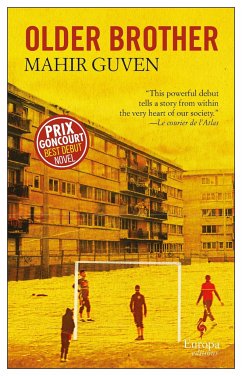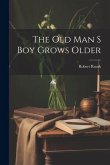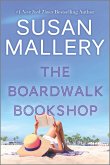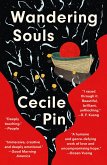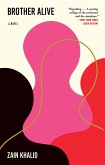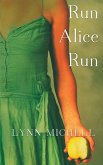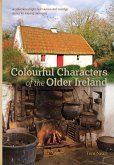They are neither French, nor the typical Arabs you find in Paris who mainly come from the former colonies in the Maghreb countries. So no wonder the two brothers who grow up without their mother do not belong anywhere. Their father left Syria in the hope of a better life for his kids, but the older
of his sons got in trouble early, only the younger one who works as a nurse in a hospital seems to…mehrThey are neither French, nor the typical Arabs you find in Paris who mainly come from the former colonies in the Maghreb countries. So no wonder the two brothers who grow up without their mother do not belong anywhere. Their father left Syria in the hope of a better life for his kids, but the older of his sons got in trouble early, only the younger one who works as a nurse in a hospital seems to have a promising future. Yet, the feeling of being unable to fulfil his dreams – becoming a real doctor, being treated like the French – throws him off the track. With a Muslim humanitarian organisation, he hopes to do something useful with his life at least and leaves the country for Syria and the war. Three years after abominable conditions leave their mark and when he returns, he is not only the same young man he was before anymore but he also has a mission to accomplish.
“We used to just be Syrians. Well, he was Syrian, and we were Maghrebins, Syrians, sometimes French, occasionally Breton; it depended who we were hanging out with. In real life, until the war in Syria, we were all more just banlieusards than anything else. But since the war, everyone’s been calling themselves Muslim.”
Mahir Guven portrays two possible ways of dealing with an undoubtedly highly demanding situation. No matter how much effort Europeans put into welcoming refugees and migrants of all kinds, societies are not easy to actually enter. The boys have a French mother and a Syrian father, thus by nature, do not completely belong anywhere. This makes them not only fragile and prone to all kinds of delinquencies, but also perceptible to questionable ideologies which on the surface seem to provide answers neither the family nor the society can offer.
The debut novel gives the young men not only a voice, but also the reader a chance to look into their heads and get an understanding of their feelings and lacking sense of belonging. It also shows that it is not inevitably the family, the friends or the milieu someone lives in which determine about their life. There are always options, decisions are made and even if you opt for one road, this does not obligatorily have to be a one-way street. Second, the terrorists who threaten our peaceful life are not always stupid idiots, but the intelligent ones who simply were refused their share of happiness and a chance in life.
I was immediately immersed in the novel which is written in a lively and authentic tone. But first and foremost, I find it highly relevant to read about these kinds of perceptions and feelings, by far too long other voices have domineered the discourse and if we want to live up to our ideals, we need to listen to them, too.

